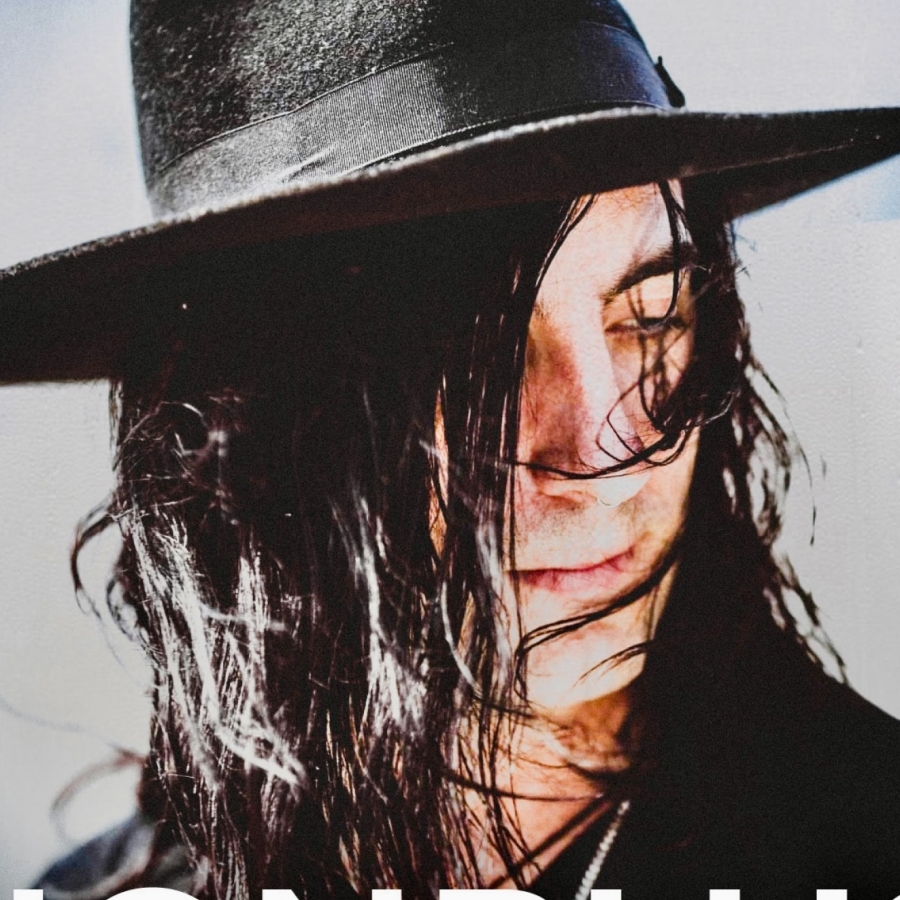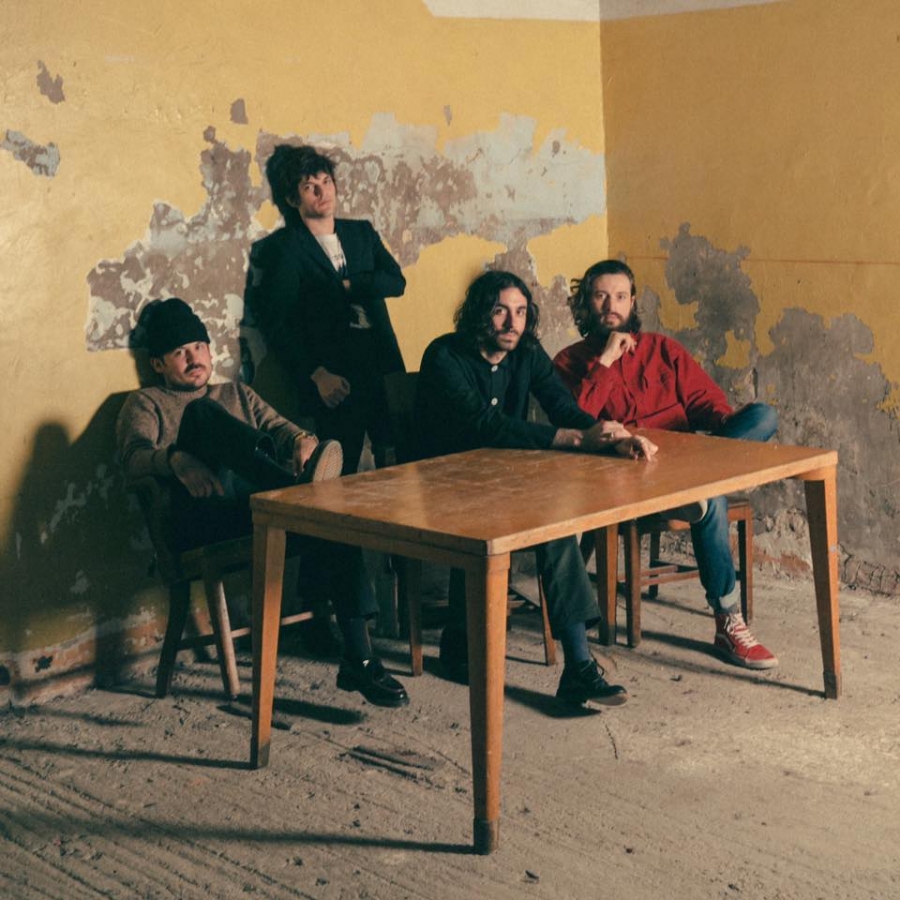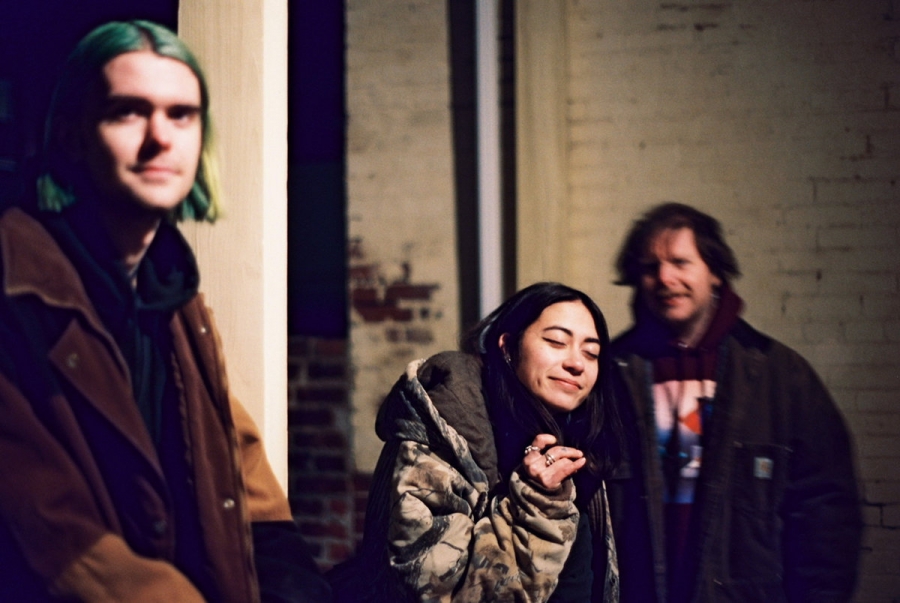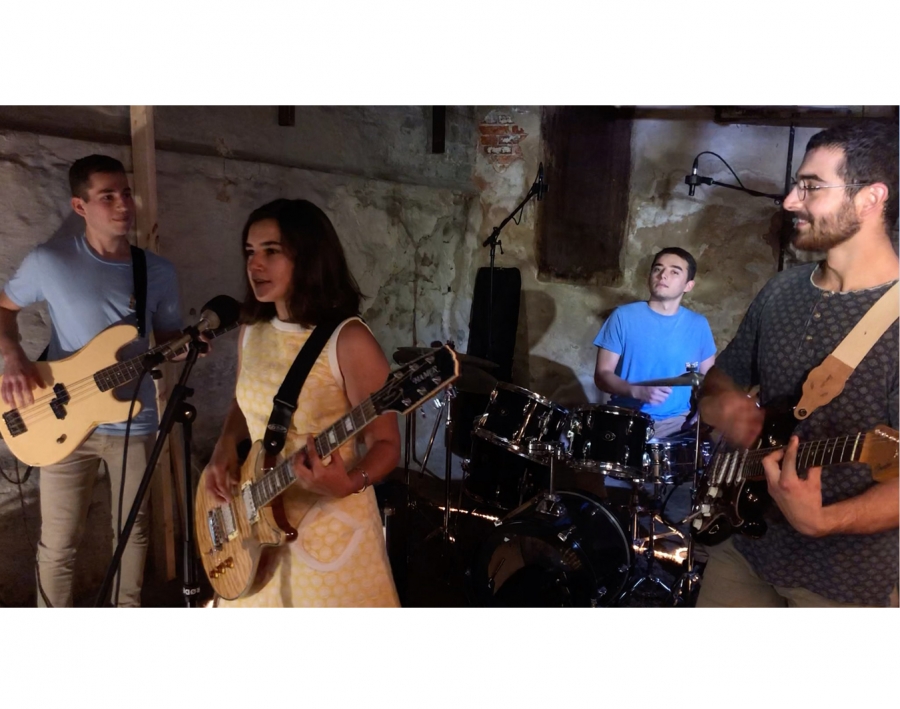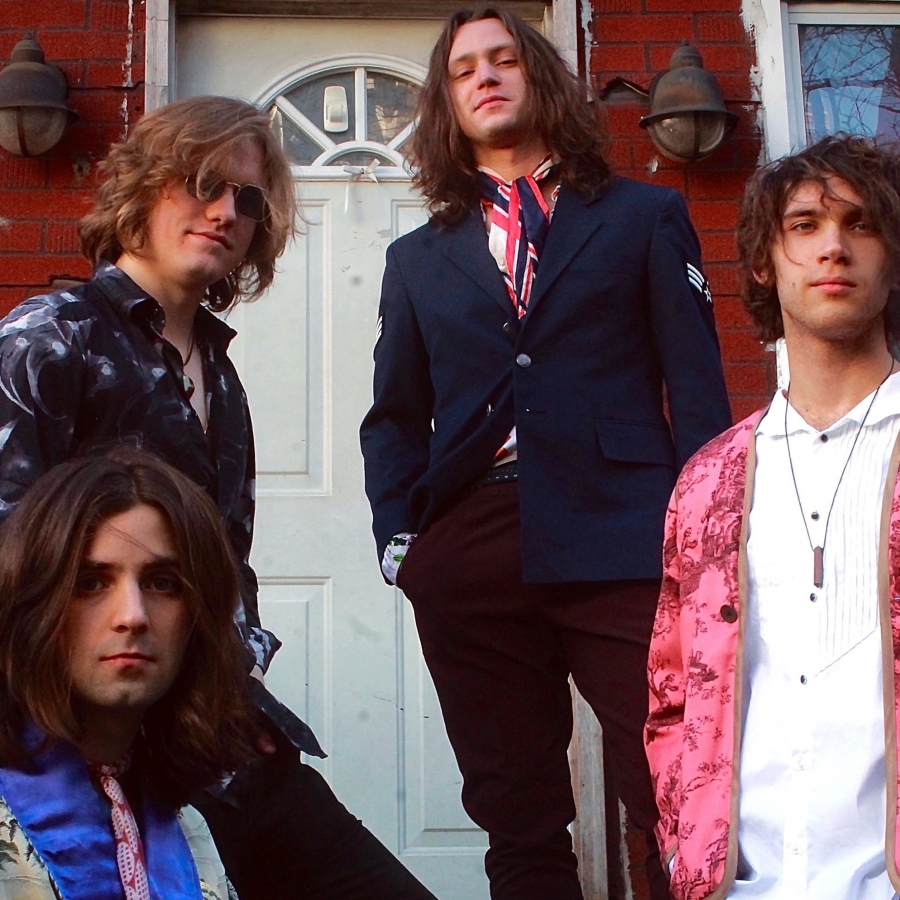This band of West Philly-ites used to be called Sports back in their Gambier, Ohio days perhaps in homage to the classic Huey Lewis and the News album—the one that had Patrick Bateman so excitedly touting its merits to his investment banker pal and rival right before hacking him to bits—but changed their name to Remember Sports (RS) most likely because they were too often mistaken for a Huey Lewis tribute band. Which actually isn’t too far off in a certain sense because RS also knows how to write a good catchy earworm hook when so inclined, a fact I can attest to because the album-opening “Pinky Ring” has been stuck in my head for about a week now and may necessitate playing “I Want A New Drug” on repeat here soon just to dislodge it for a little while.
On their fourth full-length release, Like A Stone, the band have really come into their own commercially and artistically. The record features a clear, crisp sound that gives the songs a sheen of consummate professionalism while also serving as a personal statement about the band itself. And yes I’m quoting Bret Easton Ellis via Mary Harron but hey our favorite ax murderer’s words are relevant here because Like A Stone is exquisitely executed and produced (production credit belonging to Carlos Hernandez and Julian Fader, the latter name being almost too appropriate) featuring the band’s always strong songwriting fleshed out with arrangements that move through multiple peaks and valleys and discordant bits and mellow bits and various sonic stalagmites and stalactites like with the occasional appearance of steel guitar or banjo or circuit-bent electronics thrown into the mix.
Still even with all these compelling musical details there’s a case to be made that the most striking instrument is the voice of lead singer and songwriter Carmen Perry. If you happen to be a classic country music buff, you may have heard the oft-cited quote from countrypolitan record producer and songwriter Billy Sherrill describing the “little teardrop” he heard in Tammy Wynette’s voice when she walked into his office as a complete unknown and then of course went on to become a genre-spanning legend. And that little teardrop was a big part of what made her voice so distinctive—all the little breaks and flutters and shifts in register and dynamics perfectly suiting the heartbreak at the heart of her best known and best loved songs.
Well it turns out Perry also has a little teardrop in her voice, or maybe more like a medium sized teardrop at least, which likewise suits the heartbreak and romantic longing and emotional resiliance at the core of Like A Stone—from the peppy but bittersweet 39-second reverie over a “Coffee Machine” to the slow-burning-nearly-seven-minutes-long appeal to an errant lover to express their hidden feelings “Out Loud.” Another recurring and closely related theme is the nature of memory itself and the passage of time with lines about “archiv[ing] the past with some shit that won’t last you a lifetime” (“Materialistic”) and “taking in the scenery from the corners of your mind” (“Sentimentality”) and “just sit[ting] here till the clock runs out” (“Clock”) and “my eggs flow[ing] right out of me like clockwork every month” (“Eggs”) which all makes the Remember in Remember Sports suddenly all the more relevant.
But don’t be put off if this all sounds a little bit on the heavy side because the music and vocalizing on this album have an energy and warmth that balances out the darker sentiments and you can see how the band brings it live above. Plus did I mention in the video to “Pinky Ring” above you get to see Carmen Perry pelted with eggs while wearing big plastic goggles and there’s also a part toward the end where the viewer is instructed to put on 3-D glasses (that is, if you have a pair laying around) and in fact it does look like the end part is legit in 3-D so clearly this band know how to have some fun? And since I did just mention it, it’s probably time to take my leave now because I have to go return some videotapes. (Jason Lee)
band photo credit: Sonia Kiran

